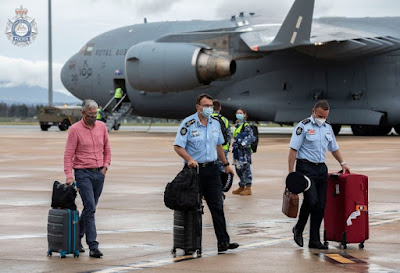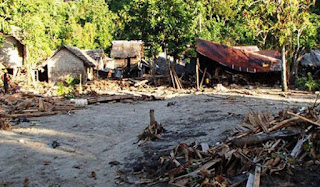Integrated ocean management unites the Pacific
A Pacific region that is united makes for a strong global voice. How should that voice speak for our ocean?
Delegates from across Oceania gathered in Apia, Samoa, this week to discuss new and emerging opportunities to increase the economic benefits to Pacific islands countries and territories from the sustainable development, management and conservation of the ocean and its resources.
The Pacific Ocean Alliance (POA) and Convention on Biological Diversity (CBD) Sustainable Ocean Initiative workshop for the Pacific Islands was co-organised and funded by the CBD Secretariat, POA, Office of the Pacific Ocean Commissioner (OPOC), Australia’s Commonwealth Scientific and Industrial Research Organisation (CSIRO), Agence des aires marine protégées(French Agency for Marine Protected Areas), the Pacific Community (SPC), and the Secretariat of the Pacific Regional Environment Programme (SPREP), with additional funding from the Japan Biodiversity Fund and Australian Aid.
The United Nations Sustainable Development Goal 14, Life Below Water, reflects the global value of the ocean and provides an opportunity for a more effective, integrated effort to meet this sustainability goal.
“My nomination as the Pacific Ocean Commissioner and the establishment of the Office of the Pacific Ocean Commissioner is in large measure a response by Forum Leaders to our acknowledged, joint commitment to finding a new equilibrium between our present rights and future obligations to our ocean and its resources,” said Dame Meg Taylor.
“The Pacific Ocean Alliance plays a crucial role in bringing together the multiple stakeholders from multiple sectors that need to work together toward common cause and purpose, if we are to ensure the sustainable development, management and conservation of our ocean and resources,” she added.
The regional unity and cooperation that resulted in the achievements of the Paris Agreement are a reminder that integration and commitment to shared values can produce powerful results, especially for indigenous peoples and developing states.
"Over generations, we have developed a culture, an intimate relationship and unique dependency on the ocean. As the health of the marine ecosystem declines, so too does its capacity to provide food, livelihoods and income,” said Hon. Taefu LemiTaefu, Associate Minister for the Ministry of Natural Resources and Environment for the Government of Samoa, noting that developing states are the least resourced to adapt to these changes.
The participants of the combined POA and CBD-Sustainable Ocean Initiative workshop include representatives from a range of industries, NGOs, as well as environment, fisheries and other development agency representatives from Pacific island countries and territories. Regional agencies including SPREP, University of the South Pacific (USP), Pacific Island Forum Secretariat (PIFS), the Pacific Community (SPC), South Pacific Tourism Organisation (SPTO), and Pacific Islands Forum Fisheries Agency (FFA) also participated in the workshop.
Outcomes of this meeting will also be part of informing global negotiations on oceans in 2017. Goals, mechanisms, and successes identified here in Apia are a step toward a united Pacific perspective for global oceans sustainable use and conservation.
“We need to be far more aware of the need to collaborate and cooperate if our use of the ocean is to become sustainable,” said Mr Roger Cornforth, Deputy Director General of the Secretariat of the Pacific Regional Environment Programme (SPREP).
“The Pacific Ocean Alliance partners, including CROP agencies, are tasked with facilitating and informing this integration.”
The workshop participants have been sharing experience across different sectors, identifying success factors and common challenges and also outlining ways to enhance cross-sectoral coordination, planning and management.
ENDS///
Source: Pacific Islands Forum




Comments
Post a Comment